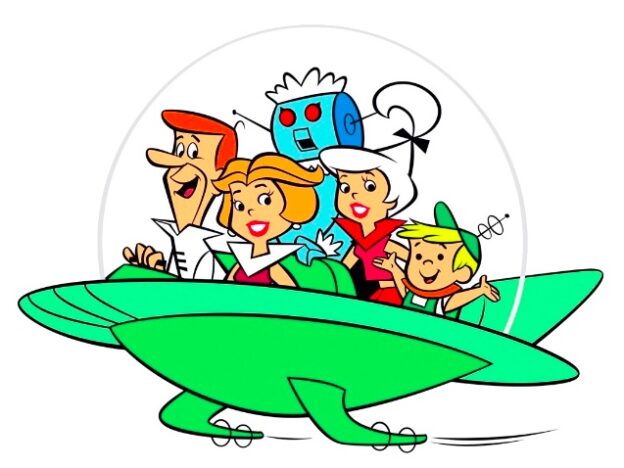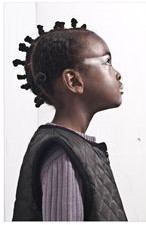
How will 2020 be categorized in history books one-hundred years from now? How will teachers then, learn from our mistakes now? The larger more pressing question is how do we, today, give student the opportunity to be educated in a system they will not grow to resent for its oppressive and dismissive policies and curriculum?

By the time students reach high school, many realize that the ways in which they have been taught to view history are centered around the Eurocentric belief system. As Gloria Ladson-Billings (1998) states these curriculums “legitimize white, upper-class males as the standard knowledge students need to know”. This is increasingly problematic. History pertaining to students of color is suppressed, creating a system where they only see themselves as descendants of slaves, and not the descendants of change makers, inventors, doctors, writers, homemakers, scientist…teachers.
I am reminded of an article in the Atlantic in 2015. It talked about this misrepresentation of history in current textbooks. “textbook publishers tend to “mystify” the reasons for the South’s secession largely “because they don’t want to offend school districts and thereby lose sales.” Some of the most widely used history textbooks today even insinuate that the South’s motivation for secession was simply to protect states’ rights—not to preserve slavery. And this “mystification” can come with significant societal implications.”
Continuing with the lies to avoid hurt feelings and keep the status quo is in return breeding a population of students not ready to address nor encompass the empathy, compassion and understanding it takes to unify and live as truly one nation under God.
My BIPOC students should not feel they need permission to say what is on their minds. In a recent class discussion about stereotypes, they were relieved when “allowed” to let go of the racist labels that plague them daily!
When given the floor to unleash feelings on the insurrection of our nation’s capital, many were surprised because they had been told they were too young to worry. Being told you are too young to worry does not diminish the feelings, only exacerbates them.
In the spring, a student asked me why when a white person does something bad it is considered mentally ill, but a black or brown person is shot or goes to jail? These issues are their minds, the impressionable minds of who we think are too young.
When asked what they would say to Dr. Martin Luther King if they had just two minutes, many talked of thanking him, but many asked for his help in healing this nation. Here is one that particularly touched my heart.
And finally, as we watched the 2020 inauguration of our first black, female Vice-President, it was my male students that sprang into the reality that soon enough, they could actually be the ones to elect our first woman president!
The only way to derail this endless train of disaster is to begin opening our classrooms to the hard truths of the world around us. I remember sitting in class and reading history books written by the white perspective. I remember diving into current events hand selected by the teacher. Why are teachers the gatekeepers to reality?
No, we should not push our values upon the impressionable minds of our students. What we are obligated to do is to provide space and opportunity. The opposite is to hinder the objectivity that comes with clarity.
I am clear that there is hate. I am clear that there are oppressive systems that have led to where we are today. But where has this led us? Our nation is more divided than ever.
Teachers that safeguard the minds of our children only to unleash them to harsh realities are only creating more hate.
This very cycle is why educators themselves cannot engage in the difficult conversations that hover over us. This very cycle is why a conversation around Black Lives is not a conversation of love and acceptance, but rather a political divide.
There are teachers with that mindset. The more we shield our students from their environment, from the truth, the more we fuel their anger. Masking and delineating the harsh realities of our current unrest is not helping students to formulate an understanding of democracy, humanity, community…life.
If I were given the opportunity to see the harsh truth, to engage in history and ethnic studies from all perspectives, my understanding, my ability to reconcile my existence would not be layered with disgust.
If we do not start having difficult conversations about race, about racism, about hate and oppression, about our nation’s true history, and our nations true present state of unrest, repeating history will not be the worst of our fate.
Curriculum Reform and Its Connection to the Black Lives Matter Movement
“By telling a more complete and honest narrative of our nation’s history, we can build our collective understanding of how institutional racism has infiltrated and continues to influence government policy. Understanding this critical historical context allows us to more openly identify systemic racism in today’s society and work together to dismantle it. It provides a starting point to heal the wounds between government and communities of color, building trust and strengthening the legitimacy of our public institutions.”
I agree with you in the sense that teachers often pick and choose which lessons to share with their students and can shield their students from reality in an honest effort to protect them. However, as students are later exposed to the conflict and debates in the world at large, the don’t know how to react. We need to expose students to a diversity of opinions and viewpoints–some of which may be uncomfortable for either ourselves or our students to hear–with the end goal of teaching our students how to listen respectfully and participate in civic discourse that betters society instead of dividing it.
Well said! I especially appreciate your urgency here. I think about that saying that those who do not learn from history are destined to repeat it. But what that phrase leaves out is our action and individual agency. History doesn’t jut happen to us, we create it. We are perpetuating systems of injustice when we don’t tell the truth in our classrooms. We are continuing to tell our BIPOC students they don’t matter when the history books and curriculum don’t represent them, their truth, and the value in their lives. As you said, our students are paying attention, they see the inequities in how people are treated based on the color of our skin. They are looking to us to help them grapple with reality, and we only do harm by trying to shield them or mask the truth. Thank you for this piece and for pushing us all to commit to doing what’s right in our classrooms. If we don’t commit to this work, nothing will ever change.
Yes to all this… and we also need to push on how building principals/admin, all the way up, need to have their teachers’ backs as we take on these important conversations. I’ve been lucky to have had great admin/colleague support, and only minor community pushback, as I work to bring in a more complete conversation about history (and literature). I do have peers who have noted a stark uptick in pushback from families and the community whenever anything other than whitewashed history and literature is presented. Maybe this is also a side effect of zooming into people’s homes for lessons.